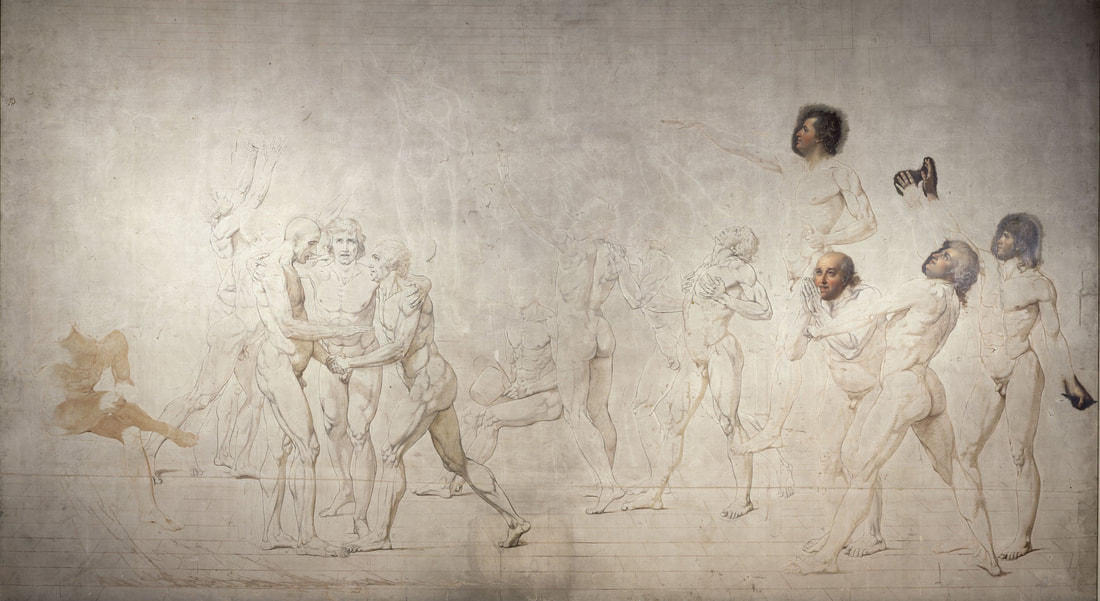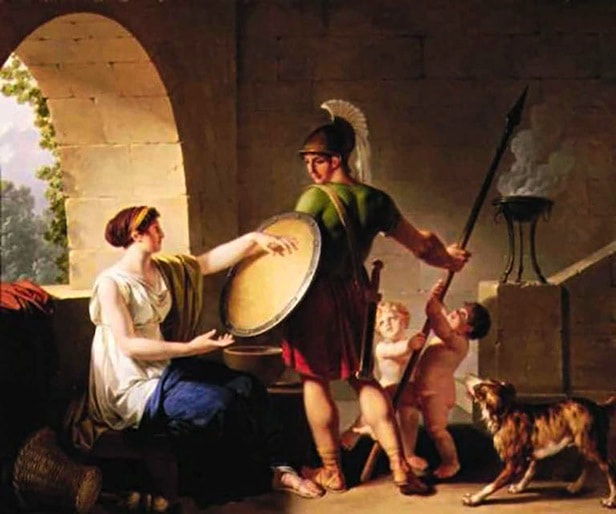|
One problem with republicanism as it was understood in the late 18thcentury, from a feminist perspective, is that like its ancestor, Roman republicanism, it is a very performative sort of political theory. To be a republican citizen means running around the clubs and the Assembly, getting oneself elected, or electing others, giving speeches, or going to listen to them, writing, printing, distributing, reading pamphlets. And aside from a few pictures of fishwives on their way to Versailles, or the infamous tricoteuses during the Terror’s trials, the imagery of the revolution is very male. Political participation is not the sort of think that you can easily do if you are responsible for the upkeep of a house and the upbringing of children. And Roland, we know, took her domestic role very seriously indeed. So how did she reconcile her perception of herself as a wife and mother on the one hand and as a republican on the other? Part of the answer was that she thought that taking care of home and children was best done as a couple – with her husband fully engaged in the upbringing of their daughter Eudora, and once left in charge of her for several weeks while Manon was in Paris and Versailles. Another answer is that Manon changed her mind when it became apparent to her that the Republic needed her to be active. And she changed her mind again after the September massacres when she decided that the French did not deserve a Republic. But none of this is enough to give a full account of how she did reconcile her belief in the important of domesticity with her republicanism. One more promising clue lies in the essay she wrote for the Academy of Besancon, in which she described the role played by Spartan women in promoting the republic: More sedentary, more enclosed ordinarily in republican governments, left to domestic tasks, nourished by this patriotism which elevates the soul and sentiments, they laboured towards the citizen’s happiness and that of the state, through the peace and order reigning inside their homes, and the care they take to cultivate in their children the germs of courage and virtues that must be perpetuated as well as liberty. Focused on their families, they could not set any other ends for themselves than that of being cherished for the qualities that are needed in the home and that they would be recommended for. The love of little things, seeking vain distinctions is a feature only of superficial societies, where each brings pretensions devoid of real merit to sustain them. What the Spartan women did on this account was to nurture virtues in the family, and that would have carried some weight with an 18th century republican. Whereas we now understand philosophical republicanism mostly in terms of its concept of liberty as non-domination, in the 18th century, it was also veyr much a theory of participation (hence the performative aspect that is so problematic) and of virtue. And what Roland could assert without contradicting herself, is that women who took their domestic duties seriously did in fact participate in the republic, by modeling and nurturing civic virtues.
0 Comments
Leave a Reply. |
About
This is where I live blog about my new book project, an intellectual biography of three French Revolutionary women philosophers. Categories
All
Archives
November 2022
|


 RSS Feed
RSS Feed